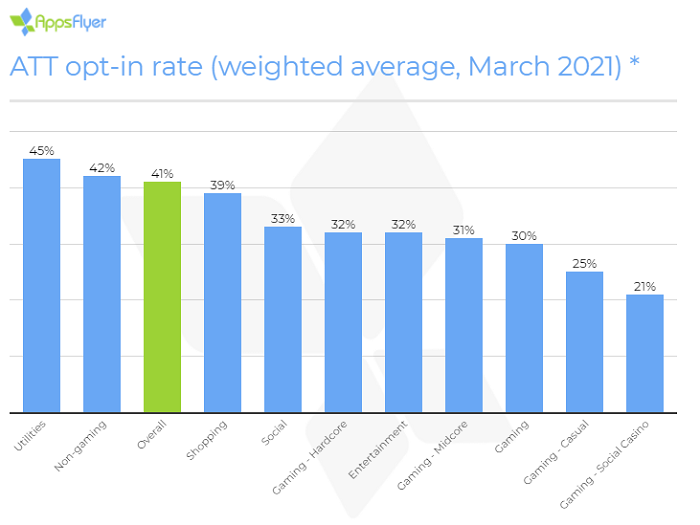Americans Reach A Crossroads - Do They Go YOLO or Solo?
A deep dive into a potential post-pandemic boom. Is FLoC a flop already? And the Chinese eCommerce site you’ve never heard of - but that teens love.
Many Americans find themselves at a once-in-a-generation crossroads:
“This recession has been very different from historical patterns. It’s highly unusual for households to come out of a recession with an enormous accumulation of savings,” said Hilt, an economics professor at Wellesley College. The conditions of the past year, he said — a fall in spending in high-ticket categories like travel and hospitality coupled with a big increase in some household incomes — has resulted in “this giant accumulation of savings that’s historically unprecedented.” // bostonglobe.com
Now the world is opening up, their pockets are fat with that sweet, sweet stimuli, and they are shouldering the weight of YOLO.
For some, that means a whole new career path:
But many seem related to a deeper, generational disillusionment, and a feeling that the economy is changing in ways that reward the crazy and punish the cautious.
Several people in their late 20s and early 30s — mostly those who went to good schools, work in high-prestige industries and would never be classified as “essential workers” — told me that the pandemic had destroyed their faith in the traditional white-collar career path. They had watched their independent-minded peers getting rich by joining start-ups or gambling on cryptocurrencies. Meanwhile, their bosses were drowning them in mundane work, or trying to automate their jobs, and were generally failing to support them during one of the hardest years of their lives. // nytimes.com
For some, revenge shopping.
But for many others, they want to make up for lost time. After cooped up for 18 months, their heart is screaming, “LFG!”
Retailers are preparing for a red-hot, American summer. The pent-up demand has ad buys booming.
“Ad spending is red-hot right now,” says Henry Blodget, a co-founder of Business Insider, which was early to introduce a subscription tier in 2017. “The economy is cranking up, travel and leisure are coming back, and consumers are emerging from their pandemic cocoons.”
“I don’t know that I could’ve predicted it at this level,” said Bloomberg Media Group’s chief executive, Justin Smith. “We haven’t seen digital advertising growth in high double digits since maybe 2017.” // nytimes.com
Even the National Retail Federation is flying the warning flag:
In 2020, overall consumer retail sales jumped 6.7 percent, despite pandemic restrictions. For this year, the National Retail Federation is forecasting as much as an 8.2 percent increase. Many economists suspect that people will choose to spend wildly — above pre-pandemic levels — to make up for a year of forced restraint.
“There will be extraordinary spending,” said Jack Kleinhenz, the federation’s chief economist. “I don’t know how else to put it.” // bostonglobe.com
It seems the registers are ready and willing. But are the customers?
We will know soon enough. But in the meantime, retailers should be carefully planning their inventory. If the boom comes, the already-strained international supply chain could significantly throttle this window of economic prosperity.
April 25, 2021
📰 The News You Missed
Google’s FLoC Struggles To Get Off The Ground
A few weeks ago, it became apparent that browsers - many of which are built by Google competitors - would need to add support for FLoC (Google’s new privacy-minded alternative to cookies) to be impactful.
We assumed those competitors would not support it, but now we know that pushback is coming from outside the browser too.
In a new announcement today, WordPress states that they consider Google's FLoC technology a security concern and they propose blocking the technology in future versions of the blogging software.
“WordPress powers approximately 41% of the web – and this community can help combat racism, sexism, anti-LGBTQ+ discrimination and discrimination against those with mental illness with four lines of code," says WordPress.
WordPress explains that though some admins will likely want to enable this technology, those admins probably have the tech know-how to override the above code. WordPress also indicated that they might add a setting that allows admins to control whether FLoC is permitted. // bleepingcomputer.com
That’s a big one.
The EFF has also objected to the new technology, going so far as launching a tool for users to see if they’ve been FLoCed.
But the reality of the technology is more nuanced than it appears, as analyst Eric Seufert outlines:
Apple has confirmed that enforcement of its new ATT policy that coincides with iOS 14.5 will begin on April 26th.

This is the day for which we have all be waiting/preparing/stressing. And it will be here Monday. This Monday.
Facebook Ads manager, Gil David, shared screenshots of an email he received from his Facebook rep outlining expectations for the rollout.
Keep in mind that not all users update their iPhones on day one. So it could take a few weeks for us to see the full impact.
Speaking of impact, this week included another study of expected opt-in rates:

I also wanted to acknowledge that our newly restricted access to data and audiences will undoubtedly put more pressure on the other variables of the eCommerce equation - conversion rates, creative, copywriting.
With that in mind, I wanted to share this great product copy framework that was shared earlier this week:
In closing, this is your last chance to knock out those important pre-launch tasks, including:
- Verifying your domain within your Facebook Business Manager
- Prioritize your events for Aggregated Event Measurement
- Connect your CMS to FB’s event API for better data sharing
As for Apple’s true motivation for ATT, we received some news on that this week:
The iPhone maker already sells search ads for its App Store that allow developers to pay for the top result. In searches for “Twitter”, for example, the first result is currently TikTok.
Apple now plans to add a second advertising slot, in the “suggested” apps section in its App Store search page. This new slot will be rolled out by the end of the month, according to one of the people, and will allow advertisers to promote their apps across the whole network, rather than in response to specific searches.
Apple declined to comment.
The expansion is the first concrete sign that Apple plans to enhance its own advertising business at the same time as it shakes up the broader $350bn digital ads industry led by Facebook and Google.
Apple’s forthcoming software update, iOS 14.5, will ban apps and advertisers from collecting data about iPhone users without their explicit consent. Most users are expected to decline to be tracked, dealing a huge blow to how the mobile advertising industry works.
Apple has said the changes will improve the privacy of its users, but some critics have accused the company of hoping to boost its own fledgling advertising business. Mark Zuckerberg, the Facebook chief executive, said: “Apple may say they’re doing this to help people, but the moves clearly track with their competitive interests.” // ft.com
MmmmHmmm.
Taking Stock of Teens
As the perpetual technical trendsetters, the buying trends of US teens are certainly worth monitoring. Overshadowed by the TikTok/China hoopla, another Chinese player has infiltrated the photos of today’s youth.
If you’re not familiar with Shein, an online fast-fashion retailer based in China, odds are you’re not a teenage girl.
The company has attracted a young and growing fanbase with the constant deluge of trendy, inexpensive new clothes it releases online and through its app, as well as with its aggressive social-media marketing. It advertises heavily on platforms such as Facebook, maintains a network of influencers who promote it on TikTok and Instagram, and regularly reposts photos from customers to keep them sharing its clothes online. In the past year, celebrities such as Katy Perry and Lil Nas X have performed at events Shein streams to shoppers.
Whatever tensions exist between the US and Chinese governments, American shoppers are not shying away from the retailer. Shein has twice ranked second only to Amazon as the favorite shopping site of upper-income US teens in a biannual survey of US teens by Piper Sandler, an investment firm. In the most recent installment, which included some 7,000 American teenagers, 7% of upper-income teens picked Shein as their favorite website for shopping.
That’s well behind the 56% who chose Amazon. But Shein came in ahead of household names such as Nike and Urban Outfitters, and its share keeps growing. For the first time it also broke into the top-10 favorite clothing brands listed by teens. // qz.com
The COVID-Induced Migration From Big Cities To Smaller Towns Creates A Unique Challenge For Last Mile Delivery
“COVID accelerated what was going to happen in e-commerce; some people say it accelerated by five years or 10 years what was already going to happen,” Stanton told FreightWaves. “Mixed into that is the migration of a lot of people out of the largest cities, whether it’s New York or Los Angeles, Detroit, moving to smaller or more rural areas, whether that’s in Texas, Florida or elsewhere around the country.”
Stanton said the e-commerce shift to smaller, regional areas could disrupt supply chains that are not prepared.
“If the population is moving around in a slightly different way or even a significantly different way than it was expected to, then businesses need to somehow respond to that,” Stanton said. “If last-mile deliveries have to drive another 10 or 50 or 100 miles to deliver that product to dozens of consumers, there is an additional cost to that. The more spread out delivery areas are, the more it adds costs to supply chains.” // freightwaves.com
Quick Hits 🥊
- Shopify added Amazon order tracking to their Shop app. It’s the only e-commerce platform the app supports besides Shopify - clearly a Trojan horse data play.
- Shopify also announced a tighter integration with Pinterest. Now retailers can port their whole product catalog to Shoppable Product Pins, and they have access to Dynamic Remarketing on Pinterest.
- Facebook is giving Timeline consumers more ways to signal preferences for what types of content they prefer.
- Amazon recently began piloting a tool for some companies to communicate with customers who opt to follow them.
- Google has delayed the launch of Page Experience (Core Web Vitals) in its algorithm to mid-June and promised a minimal impact.
- Walmart+, Walmart’s Amazon Prime competitor, continues to ratchet up its game.
- Florida will now require out-of-state vendors to collect sales taxes as the state looks to generate revenue and level the playing field between online and physical retailers
Just For Fun 🤪
How Pfizer Became the Vaccination of Status
“One of my cousins got Moderna, and I was like, ‘That’s OK. We need a strong middle class. We can’t all be CEOs.’” // slate.com
I’m proud to say I had no idea this was a thing.

